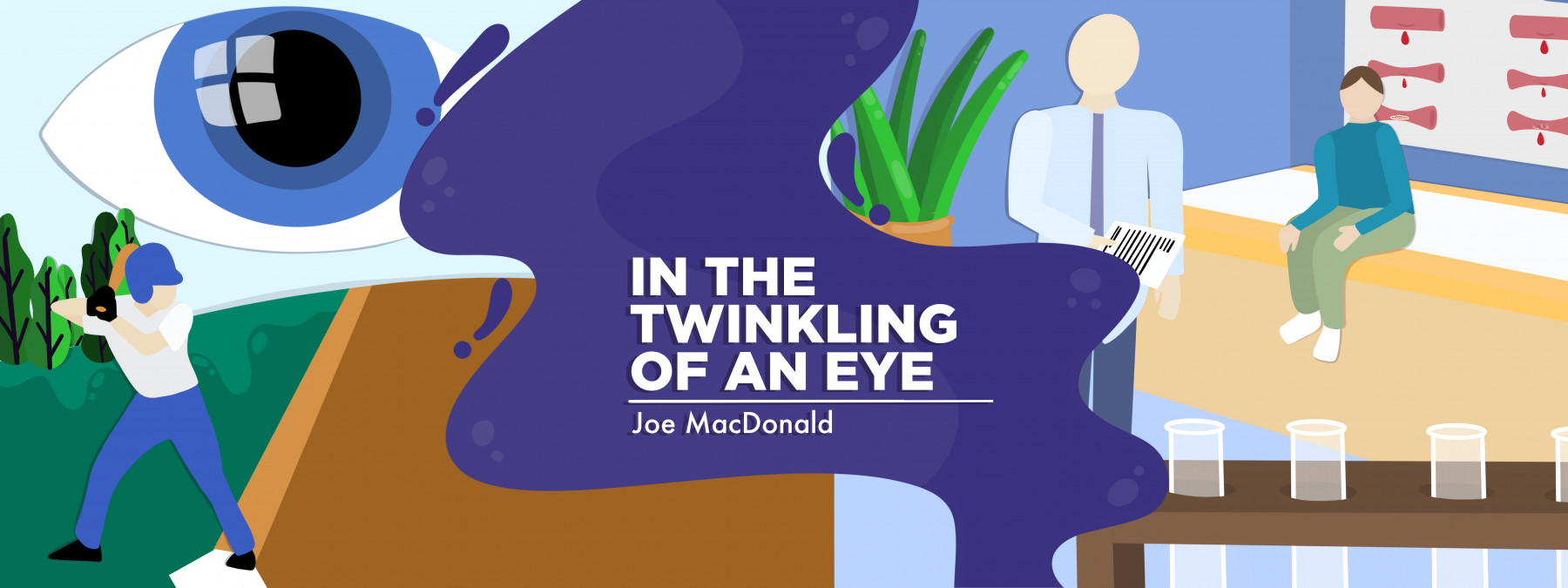Helping my son stand when hemophilia knocks him off balance
Curbing my own anxiety makes me able to assist him with his joint pain
Written by |

Today started out like most any other day. I walked into the room of my youngest son, Caeleb, to wake him up to get ready for school. I love the ritual of turning on the lights and singing a familiar tune to my family.
As I began, however, I found Caeleb crying in pain. Many years of breakthrough bleeding episodes have left his right knee and ankle with little to no cartilage. He looked at me as he experienced spasms in both joints and said, “Dad, I’m sorry, but I don’t think I can make it to school. I hurt too much.”
Part of my spirit died as I tried to rally by his side. “How can I help you get up and go to school?” I asked. His continuous shrieks of pain let me know that his ability to move did not exist. The chronic pain he suffers launched an all-out attack on his body, and I could do nothing but sit beside him and attempt to coach him through the roughest moments of the early morning.
Caeleb is a senior in high school, and in my mind, most of his evenings should be concerned with social events, such as homecoming and prom. Instead, we often fight through the land mines of chronic pain. Once again, hemophilia had knocked us off balance, and we searched for ways to stand up while the raging storms of uncontrollable agony brought us to our knees. We always search for ways to stand upright and live our lives, but sometimes the ravages of past bleeding-disorder difficulties offer no place of rest.
Learning what assistance I can offer
As I heard Caeleb cry out, my head went many places. I thought to myself that I’m his dad, and I should find a way to make his hurt go away. I sank into despair as I realized there’s nothing I could do to alleviate his joint pain. The only thing I could offer him was the calmest presence I could muster as he struggled.
I stood by his bedside and reminded him of possible ways to cope. As he cried, I reminded him of the tools we practice when he’s not in crisis mode. In a small voice, I gently reminded him to take deep breaths. I often tell him to hang on because this crisis will pass. I’ve learned how to manage my own anxiety and have found that I can best help Caeleb by being still and quiet and allowing him to squeeze my hand when things get rough.
I’ve learned through the years that to help my son move through the more challenging experiences, I have to struggle with my own ways of coping with a crisis. I must admit that it took many years before I could remain calm during a storm. In the old days, I felt my body tense, my heart beat faster, and my mouth go as dry as the desert. Stress often overwhelmed me, and I struggled to help my son through his roughest moments. I usually felt defeated and unable to give him the support he needed.
I found positive ways to help my son by taking the time to examine why I reacted as I did to difficult situations. I learned that what I truly felt during the worst of times was fear. Imagine: That four-letter word crippled me.
Once I learned to sense when my anxiety kicked in and I felt the first effects of panic, I practiced the valuable tools needed to help me — so that I could help Caeleb.
I concentrated on my breathing and relaxing my shoulders as I attempted to slowly fill my body with nice, deep air. As I practiced centering my soul, I turned to my son and offered him the opportunity to focus on his breath. While I couldn’t take his pain away, I could model for him a healthy approach to managing the many challenges related to his bleeding disorder.
While I cannot experience success with overcoming debilitating pain 100% of the time, I find gratitude during the times I can help. When Caeleb struggles, as he does on many mornings, I stand in the room and offer him a smile to let him know I won’t leave him during his most significant struggles.
We may need to raise a white flag now and then, but we refuse to allow hemophilia to overwhelm us. We stand strong and proud.
Note: Hemophilia News Today is strictly a news and information website about the disease. It does not provide medical advice, diagnosis, or treatment. This content is not intended to be a substitute for professional medical advice, diagnosis, or treatment. Always seek the advice of your physician or another qualified health provider with any questions you may have regarding a medical condition. Never disregard professional medical advice or delay in seeking it because of something you have read on this website. The opinions expressed in this column are not those of Hemophilia News Today or its parent company, Bionews, and are intended to spark discussion about issues pertaining to hemophilia.




Leave a comment
Fill in the required fields to post. Your email address will not be published.